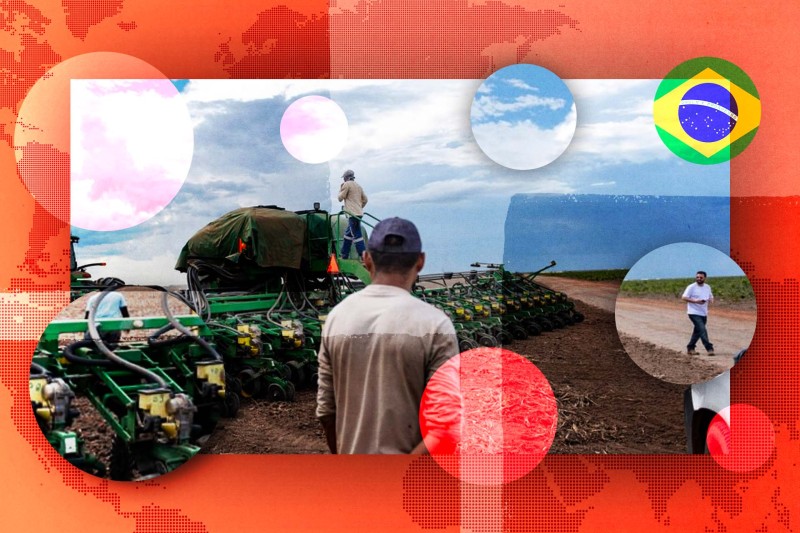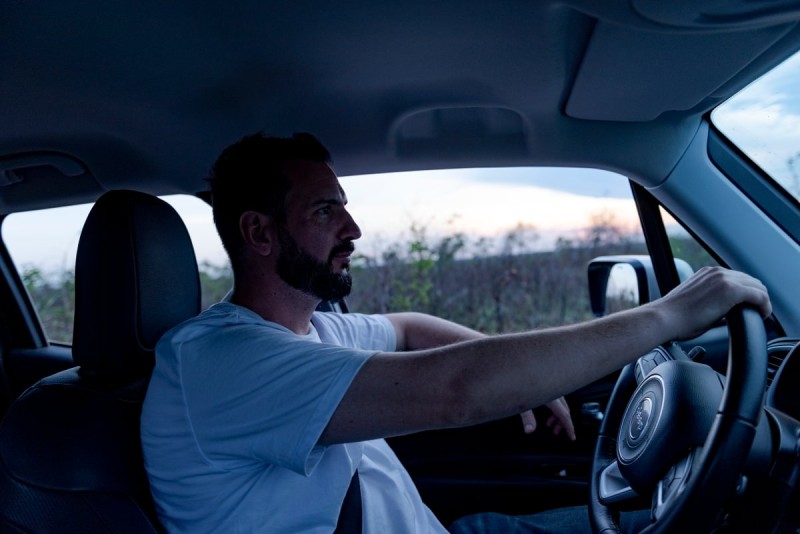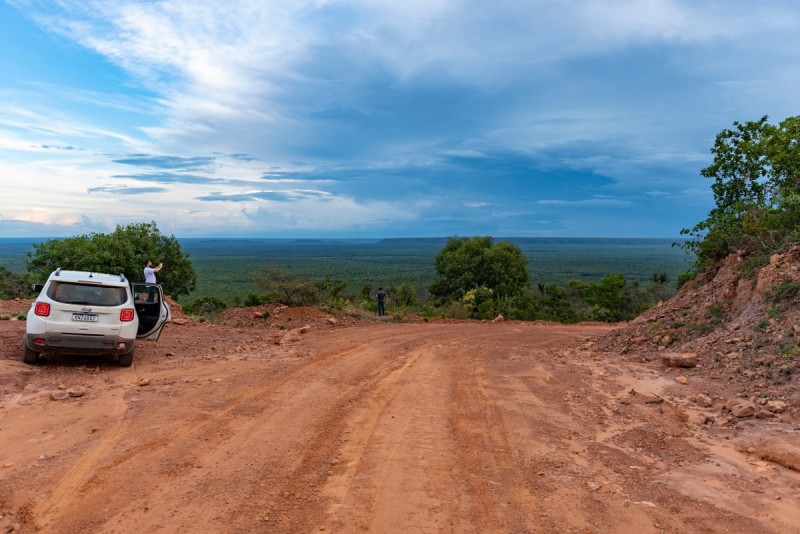First, tell us about your job and what your day-to-day looks like.
I work as an editor and reporter focused on investigations into crimes involving Brazil and Brazilians, especially those with international ramifications and cross-border connections. My daily routine begins with systematic monitoring of federal police operations, the news, and, above all, court records. Every day, I come across thousands of pages of legal documents that may contain untold stories.
Most of my time is dedicated to investigating already approved stories or preparing pitches for new ones. I also stay in regular contact with sources and with fellow journalists and freelancers to discuss potential collaborations and story ideas.
In addition, I often assist colleagues who come to me with questions about investigative tools or methodologies. I also make a constant effort to stay up to date: I follow the work of professionals I admire, study new investigative methods and tools, especially those related to OSINT (open source intelligence), and keep an eye on tutorials and innovations in investigative journalism and technology.
How and why did you become an investigative editor?
I became an investigative journalist more than 15 years ago because, above all, I’m incurably curious. I’m the kind of person who pulls a loose thread in some forgotten corner and follows it wherever it leads. Sometimes, it unravels in a politician’s office; other times, it winds through dry branches deep in a forest.
What drives me is the fact that stories are like puzzles: scattered, seemingly disconnected pieces that, with patience and obsessive persistence, begin to fit together. Slowly, they reveal a bigger picture, which is often uncomfortable and, almost always, hidden.
Above all, though, I love the stories that open doors and introduce me to new places, people, and ideas. In that sense, journalism is also a path to self-discovery.
And so I keep going. An idealist who hopes to change my own world — and hopefully, with persistence, faith, and a bit of luck, change someone else’s too.
How did you start working on investigations related to environmental crimes?
Investigations into environmental crimes hold a special place in my work and in my heart.
First, because the environment is the defining issue of our generation. The climate emergency is urgent and demands our attention. And second, because it touches me personally. Not only because I live in a country “blessed by God and beautiful by nature,” as the musician Jorge Ben once sang, but also because Brazil is home to the largest tropical rainforest on Earth: a place that is both magical and haunting.
It was in the Amazon that a journalist I deeply admire was murdered in 2022. I never met Dom Phillips in person, but his words reshaped my path after I heard him speak during an online panel at the Brazilian Association of Investigative Journalism (Abraji) conference.
That was in 2020, at the height of the COVID-19 pandemic. The world, including me, was in rough shape. But Dom’s story cut through the fog and stirred something in me. His attentive ear to the voices of the forest, his courage to go where few dared, and the advice he shared during that talk — all of it stayed with me.
Investigating environmental crimes is also a way of honoring Dom’s legacy. It’s my attempt to piece together a world in disarray and, with some luck, to expose the connections so people might act and turn the climate crisis around.
President Luiz Inácio Lula da Silva has said, “If everyone’s talking about the Amazon, then why not hold the COP in an Amazon state so that they can find out more about it?” What are your hopes that “the world’s most important climate event” will garner attention for Brazil and the Amazon?
I wish I could say I’m optimistic, but I’m not. Just look at the track record of past COPs to see that the climate goals set so far have not been fully met. These targets are often unambitious or lack sector-specific details, making both monitoring and effective implementation difficult.
Moreover, the current international scenario is worrying. The president of the world’s largest economy, Donald Trump, is a well-known climate change denier and the U.S. didn't even send a delegation this year, which is unprecedented. Without the commitment of the United States, it’s virtually impossible to make meaningful progress in tackling the climate emergency.
In Brazil, the outlook is also contradictory. Congress is dominated by interests that largely clash with the environmental agenda. Many lawmakers have direct ties to agribusiness, and some have even been fined for environmental violations.
Finally, there are serious logistical obstacles. Accommodation prices in Belém are outrageously inflated, which is likely to prevent the participation of many people who are essential to the climate debate. Holding the COP in the Amazon carries symbolic weight, but in this context, I fear its concrete impact will be limited.
Are there any environmental investigations you’ve worked on for OCCRP that stand out for you?
"How Endangered Brazilian Timber Ends Up in the U.S.," published in partnership with piauí, combined several elements that are of great interest to me: environmental crimes, drug trafficking connections, and political implications. Not only was it my first investigation for OCCRP, it also marked my first collaboration with piauí reporter Allan de Abreu, whose work I’ve admired for years. This story made an impact: after publication, the police launched an operation that arrested people involved in the scheme we exposed. Our reporting was even cited in the case files by the lead investigator.
Piles of logs in Vila Isol.
How does your work confront the climate crisis?
I see my work as a direct contribution to tackling the climate crisis, especially by exposing those who profit from environmental destruction. Well-grounded investigative journalism helps uncover networks of interests behind crimes such as deforestation, land grabbing, and illegal mining — actors who often operate in the shadows but hold significant economic and political power.
By bringing these facts to light, we strengthen accountability mechanisms and provide valuable evidence for the justice system, civil society, and policymakers to take more effective action. Also, by making these stories accessible to the public, we help build critical awareness, push for structural change, and in some cases, even deter future crimes by increasing the risk of exposure.
You leverage open data and OSINT in the course of your work and you’re known for sharing tips, tricks, and tools with other journalists. You were among the first at OCCRP to use AI. How did you begin to use it? What are the possibilities from an environmental investigation perspective?
These days, when people talk about artificial intelligence, most immediately think of language models like ChatGPT, which I’ve been using for over two and a half years. But I actually started combining AI with OSINT techniques well before that.
There are different types of AI models and they can be powerful tools to accelerate, expand, and deepen investigations. I often use AI to analyze large volumes of data, translate, and interpret texts in multiple languages, analyze images, automate repetitive tasks, and automatically transcribe audio.
Specifically in environmental journalism, I see great potential in using AI to detect patterns. For example, satellite imagery combined with AI tools can help us identify illegal deforestation or unlicensed mining in protected areas. I’ve also been using tools like Google NotebookLM to analyze thousands of pages of court documents related to environmental crimes, as it helps summarize and highlight relevant information.
Quick Take:
Who else is doing great environmental investigations?
InfoAmazonia, Mongabay, O Joio e O Trigo, and the Rainforest Investigations Network fellows at the Pulitzer Center.
What’s your favorite thing on your desk?
My coffee bucket — I mean mug.
What was the first concert you went to?
Double You (Italian techno), when I was a kid.
What’s your favorite candy?
"Candy," the song by Iggy Pop.
What’s your favorite take out order?
Pizza!
What makes you laugh?
Usually something that mixes irony and absurdity in a clever and unexpected way.
What do you wish more people knew about Brazil?
The incredible diversity of Brazilian culture and the creativity of its people — literature, cinema…and our music is a whole different story. This playlist does a better job explaining what I can’t quite put into words.






